 By Trevor Pacelli After college, I found myself waiting for travel opportunities to come to me. I didn’t want to face the awkward loneliness of traveling alone and I believed traveling with a wife or in some group were my only options. I even did a mission trip to Spain five years ago, but I was put into stressful social situations, and the fact that I couldn’t connect well with my team made me feel even lonelier than being there by myself. Then when I adopted a dog three years ago, I was motivated to travel to the ocean for an overnight trip with her. It was the first time I booked a hotel room on my own, and had a great time. After that, I went on two separate overnight trips to Portland, which got me more comfortable with traveling on my own. But I still hadn’t gone on a big solo vacation that required an airplane. I had been feeling a strong urge to return to Disneyland, since I hadn’t been there since 2008, and it reached a point where I finally said: “That’s it. Time for a Disney vacation. With or without somebody else to do it with me.” So, for the next several months, I did a lot of planning on what to expect. My mom gave me a Disneyland vacation guide on Christmas. I booked a hotel room, I made reservations for Disneyland and California Adventure, and two months before my visit, I made restaurant reservations. I looked up which park attractions would have the longest wait times. I researched the most critically acclaimed food items and planned my meal and snack times around them. My sister also gave me some advice, since she had made the trip recently. As a result of all I did before the vacation, I can proudly say that my Disneyland 2024 trip turned out to be monumental, even life-changing. I truly had the time of my life. Surprisingly, I never felt lonely the entire time, not even at sit-down restaurants on my own. I spent three full days in the parks, pretty much from opening to closing, which might not be possible with other travelers. The attraction highlights for me were the Indiana Jones Adventure, Pirates of the Caribbean, the Adventureland Treehouse, Mickey’s Runaway Railway, Rise of the Resistance, Radiator Springs Racers, Toy Story Midway Mania, Web Slingers: A Spider-Man Adventure, Soarin’ Around the World, the Incredicoaster, Grizzly River Run, and the Mad Tea Party (which I found is best to go on at night). It was perfectly fine riding by myself, and sometimes an advantage, since a few of these rides had single-rider lanes. I even found a strong appreciation for the gentler thrill rides like Astro Orbitor and Golden Zephyr, which allowed me to be in the air and feel the relaxing breeze through my body as I took in grand views of the park. It was nice to take my time through any rides I wanted to try. This trip was also my first time seeing Galaxy’s Edge, which is so detailed and perfect for any Star Wars fan, like me. Cars Land was amazing to see as well, it was just so immersive and beautiful to be in at night. The only slight sadness I felt was finding the Haunted Mansion was closed for refurbishment, and Splash Mountain was still in the process of being renovated into Tiana’s Bayou Adventure. I love good food, and the best thing I ate was the Monte Cristo at Café Orleans. I also loved the raspberry rose macaron at Jolly Holiday Bakery, the bacon at Carnation Café, the chocolate peanut butter sandwich, and of course, those famous pineapple Dole whips! Although I was excited about it, deciding on what food to get was the most disorienting part of my trip. It was a challenge to figure out the best of the best in both parks and make sure to get my money’s worth, and some of the places weren’t always open. The pineapple Dole whip, for instance, I couldn’t get on my last day at Disneyland because of closures, but ended up finding one at the Disneyland Hotel before flying home! And of course, as a lover of visual arts, I have to mention the World of Color, the water and light show at California Adventure that plays at night outside Pixar Pier. It’s one thing to hear about it and watch a video of it, it’s a whole different thing to see it in person. Watching the showcase of lights, music, and water put into perspective why the Disney brand remains so relevant even after a hundred years. It’s a corporation full of passionate artists who pour their whole souls into pushing the mediums of animation and visual effects forward, innovating new storytelling techniques that enable anyone the chance to tell their own stories. I’ve come back from Disneyland a changed man, and now instead of waiting for someone else to do trips with me, I’ll always have a major vacation I’m looking forward to year after year. The question is, where will I go in 2025? I’m thinking New Orleans. Thus, I believe planning a vacation can be one of the most important accomplishments an autistic adult could ever achieve. Not only is traveling alone so much cheaper than traveling in a group, but it’s a benefit to not have to plan each day around anyone else. I’ve been on family vacations where stressing over what to do next and working around hiccups in the trip can take the fun out of it. Yet when I was in California by myself, stress was never a problem! It was easy for me to readjust to plan B whenever necessary (partly also because of my extensive research). So, planning a solo vacation is a fantastic goal for other adults on the autism spectrum to set for themselves, it’s an enormous step forward in independence and is perfect for rediscovering your potential. Trevor's latest books are What the Movies Can Teach Us About Bullying, and What Movies Can Teach Us About Disabilities. Meet him at Indie Author Night at Brick & Mortar Books in Redmond, Washington on June 3 from 6 to 8 p.m.
1 Comment
 By Trevor Pacelli 2023 is ending, so I figured now would be a good time to share some of my upcoming projects for 2024, as well as how working on these projects has given me multiple opportunities to be a storyteller. Read the full post 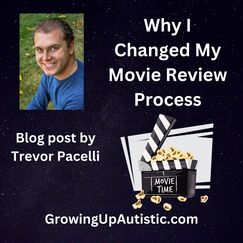 When I was in college back in 2014, I created my movie review blog, TrevorsViewOnHollywood.com, because I found during that time how much I enjoyed talking about movies. So whenever I went to see a new movie, I wrote a review on it and posted it on my blog. At that time, it all seemed to be going fine as a hobby, as there was some generally good feedback about it from friends and relatives. Then when I left college, I started working for my parents’ company, Consetta Group, where they worked with me to develop my own personal businesses, which included my movie reviews. I started to get more serious about it and tried monetizing it further, posting a new review every Friday, which likewise meant seeing a new movie in theaters every week. It was pretty exhausting, especially when I had to see movies I otherwise would never have wanted to see, but this format of reviewing movies motivated me to construct my own elaborate system for grading movies that I continued to perfect and master over the next several years. It helped me improve my ability to assess whether a movie was well-made or not. During this time, I was also heavily dedicated to following the Oscars, which included making predictions each year as to what would be nominated. I kept this up by posting a new review for a new release every Friday even after I left Consetta Group, and for a while, this all seemed quite effective. But then COVID-19 hit. Movie theaters closed. I couldn’t post a review for a new weekly release anymore. At first, I decided to review older classic films, with some direct-to-streaming releases mixed in, but as the months passed with movie theaters still being closed, I was losing my drive to review movies. Even when the vaccine became available, movie theaters opened back up, and life slowly went back to normal, my old passion for reviewing movies was gone. It started to feel like a chore to have to keep up my commitment to posting a new review week after week, and I hated having to sit through the big popular movies that I already knew going in were going to be bad. It didn’t help either that I was losing my respect for the Academy of Motion Pictures. I knew already that they nominated films based on campaigns and not based on filmmaking quality, but leading up to the 2022 ceremony, they were making horrifically insulting decisions to try and bring viewers back. Their decision to remove several of the categories from the live show was the straw that broke my camel’s back; I officially decided that for the first time in six years, I was going to boycott the ceremony. Upon looking back, I made the right decision. So that was one more step forward to dropping this hobby that was no longer fun for me. Yet here’s another thing: having to talk about badly-made movies affected my optimism outside of the hobby. My big “come to Jesus” moment was when I shared a pretty tasteless joke on Facebook about the Depp vs. Heard trial and was called out for it, which convicted me of how writing constant negative reviews for the popular movies was damaging my optimism throughout the day. So I gave it up. I never again posted on my blog. No longer did I feel pressured to see all the new Marvel movies or Disney live-action remakes. No longer did I have to bring a notepad into a movie theater and struggle to see what I was writing in the dark. I was free to watch what I wanted when I wanted. I was free to watch nostalgic guilty pleasures of mine, such as the 2002 Scooby-Doo movie, or older movies I was interested in checking out, such as Bedknobs and Broomsticks. I’m also free now to go to the movie theater on my own terms and watch movies I want to see. So out of my own free will, I saw both M3GAN and The Super Mario Bros. Movie; although neither was what I would consider “good,” I had a fun time with both of them. Then during the week of “Barbenheimer,” I decided to go see both Barbie and Oppenheimer. While I hated sitting through Oppenheimer, I was pleasantly surprised by Barbie. So it was worth joining in on the popularity bandwagon this one time so I could then join in on a conversation I wanted to be a part of. I am currently writing mini-reviews of movies I have seen in the past, and categorizing them to make it easy for people to find something to watch for fun, or other moods. They can be found on Instagram and on our Pacelli Publishing website. Overall, I can’t even imagine going back to my commitment of reviewing one new movie a week on an elaborate grading scale. I’m much happier this way. To learn about movies that depict disabilities, check out my book, What Movies Can Teach Us About Disabilities. 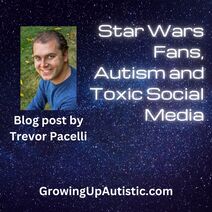 The Star Wars fanbase is an extremely passionate bunch, with strong opinions of all extremes. I have learned much about myself and my relationship with social media because of my interactions with this fanbase. I hope my experience as a young adult with autism and avid movie buff will help others navigate some of the ups and downs of social media. Of the Star Wars franchise, I really love watching the original trilogy, the first two seasons of The Mandalorian, and two out of three films from the sequel trilogy. Now, I’m with everyone else who agrees that the last of that trilogy, The Rise of Skywalker, is hot garbage, yet a vocal majority of Star Wars fans also say the same about the other two sequel trilogy movies that I love: The Force Awakens and The Last Jedi, even saying they’re worse than any movie from the prequel trilogy. Whenever a Star Wars-based social media account posts anything even remotely related to the sequel trilogy, the comment thread is always toxic with hatred for all three of those movies. It presses my need to make my own opinion heard: I believe the first two movies from that trilogy are really good, even better than the entire original trilogy. I realize that putting this opinion out there only starts trouble, as these types of internet trolls are always happy to start fights with anyone who disagrees with them. Yet I just can’t stay away from voicing what I see as the truth, especially with a fanbase as toxic as the one for Star Wars, and I feel an overwhelming need to knock some sense into the idiots in that community, or put them in a position for me to report them and watch them get punished. You can follow this link to read more of my thoughts about all the Star Wars movies that I believe are worth your time to watch. This type of interaction is also tied to my anxiety: I’m afraid that no matter what my opinion may be, I'm always wrong. It doesn’t matter whether my opinion clashes with a child, a Harvard professor, or a jobless troll on the internet, I always doubt my own judgment. Often, when an internet user resorts to throwing insults, I take it a lot more personally than others do; I wonder if what they said to me is true. One time, someone on the internet called me a creepy middle-aged man (even though I'm 30) and it made me wonder if I really am creepy because I enjoy certain media primarily made for kids. Yet as much as I dislike engaging in online fights, I feel the need to do so in order to convince myself that the other is wrong. This addiction has prompted the decision for me to leave Twitter and Facebook. Looking back, I don’t miss those platforms one bit. So how then can others on the autism spectrum navigate a toxic world, especially when online, the place where much of our lives happens nowadays? Well, first off, it’s the duty of a parent to survey their child's internet activity like a hawk. Anyone can get in a lot of trouble online, and not just the illegal kind or the "revealing too much personal information" kind. The internet is full of a lot of scummy people, and the online setting seems to bring out everyone’s worst traits. The anonymity of comments makes spiraling down that rabbit hole of toxicity way too easy. Everyone needs to understand that social media bickering doesn’t do anyone any good. There will never be a winner, only two losers. Unfortunately, social media is much more attractive to kids on the autism spectrum since they don’t have to struggle to read facial cues. I for one am a slow processor when thinking of words to say verbally, and I often get lonely, so I have resorted to starting conflicts with strangers on social media to at least have some form of communication. That’s why I encourage involvement in social clubs and volunteer groups for more chances to meet with people face-to-face, something that we all need, autistic or not. However, because some fans’ hatred of certain Star Wars movies is not fully possible to avoid, and for reasons I’m still working on, I have clung to the fear that I should feel ashamed for loving The Force Awakens and The Last Jedi. I have found that I need to constantly remind myself of the great things done well in those movies. Despite my autism, it’s possible for me to find confidence in my own judgment, and you can do the same if you are on the spectrum. If your lack of confidence in your opinion is causing you genuine stress, then it’s time to shove aside whoever’s saying the opposite opinion. That may mean you have to leave social media, but you should do whatever you need to ignore the opposing argument and remind yourself of why you have the stand you’ve taken. I understand that this is not the familiar “be open to other people’s points-of-view” message, but if someone else’s point-of-view is causing you low self-confidence and diminished mental health, then that’s the time to shut off your ears to the other side. You can see my movie recommendations on our Pacelli Publishing website, and check out my book, What Movies Can Teach Us About Disabilities, which includes a chapter about how autism is portrayed in the movies. --by Trevor Pacelli, author of What Movies Can Teach Us About Disabilities
Autistic people have all sorts of special interests, some are temporary, and others are lifelong. Some even are drawn to a common special interest. Pokémon in particular has quite a bit of appeal to people with autism because the games are run by a simple set of predictable rules that have remained mostly static over many years. It’s a nice blanket of familiarity as someone with autism goes through a long life full of constant change. Every three years, a new generation of Pokémon is always expected to begin, meaning a new set of games debuts with around a hundred brand new Pokémon added to the series. Each game follows a rather similar pattern: you start your adventure after choosing between one of three starter Pokémon, one a grass type, one a fire type, and one a water type, to be your first companion. You explore the region. You battle eight gyms. You take down an evil team. A rival often intrudes your way. Once you win all the badges, you take on the Elite Four and the champion to beat the game. While playing this game, the type matchups resemble a big complex system of rock-paper-scissors following a logic-based system: grass is strong against water, fire is strong against grass, water is strong against fire, and so on. Because many autistic people love numbers and statistics, and because the adorable Pokémon of this franchise are all so vibrantly colorful, researching the stats and type matchups of these lovable creatures offers a lot of comfort for ASD in a sensory-heavy world. It all seems fine and dandy… until the latest games, Pokémon Scarlet and Pokémon Violet, introduced a new Pokémon that reminded the fanbase of a problem that has plagued the entire series since day one that has been particularly troublesome for the ASD community. This Pokémon is Finizen, a cute little blue dolphin whose evolution, Palafin, still looks the same besides a pink heart appearing on its chest. While this Pokémon’s stats start off rather mediocre, Palafin contains a special battle gimmick: When sent out into battle and then called back to the trainer’s party, the dolphin ‘mon changes into its “hero” form, with a Superman aesthetic and insane battle stats rivaling most legendary Pokémon, plus a scary attack stat of 160 (the series’ highest attack stat is 190). What makes these Pokémon even more adorable is that Finizen evolves into Palafin at level 38, a nod to the year 1938, when Superman had his first comic book appearance. Unlike most Pokémon who evolve naturally at a certain level, Finizen only evolves when it levels up to at least level 38 while battling in multiplayer, a feature unique to Scarlet and Violet where up to four friends can connect over Wi-Fi and explore the game together. What could possibly be so bad about this though? Who wouldn’t want a pal like Palafin in Paldea, who evolves while playing with some pals? Well, there are lots of game players, especially those with developmental disabilities, who already struggle to make friends, meaning unless they own a Discord or get lucky enough to encounter a Palafin inside the "tera raid dens" throughout the game, they’ll never get to register Palafin into their Pokédex, and thus will never get to fulfill the series’ slogan of, “gotta catch ‘em all!” This can be true for lots of people who may be socially anxious, not have many friends, or may not have other friends who also play the games, but it’s more especially true for people with developmental disorders, including autism, who already struggle to make friends. This problem isn’t unique to just Palafin, nor is it unique to Scarlet and Violet, way back at the start of the franchise, right from the Red and Blue days, some Pokémon were made to be only obtainable by hooking up link cables into the Gameboy and trading Pokémon amongst friends. The major releases always have two versions for this specific purpose; Oddish could be caught in Blue version but not Red, and Vulpix could be caught in Red version but not Blue. To add to that toilsome grind, some Pokémon, such as Machoke, Kadabra, and Graveler, could only evolve by trading. Bottom line, nobody could ever complete the Pokédex of any of these games without having friends to trade with. With the whole “gotta catch ‘em all” message that was pressed in the franchise’s early years, it seemed to punish players who didn’t have friends. This is why the game Pokémon Legends: Arceus was revolutionary for the series… since the players at last no longer needed others to complete the Pokédex. Kadabra, Machoke, and Haunter now evolved simply by being given a new in-game object called a "link cable," and version-exclusive Pokémon were gone; all Pokémon in the Pokédex were available in the same game cartridge. Yet even without the need for this game, the past few generations have made trade-exclusive evolutions, such as Gengar, Machamp, and Dusknoir, available to find in the wild. Thus, it was easier for a player to battle with that one powerful Pokémon on his team as well as fill the dex up. But version-exclusive Pokémon didn’t go away in the major games that came in two versions, especially not in Scarlet and Violet. So in the span of a year, with the existence of Palafin, GameFreak took one step forward and two steps backward. In future games, the online "trade" component of the games really should be exploited further to make completing the dex easier for people who may struggle to make friends for any number of reasons. I propose that it should be made possible for someone to make a request online for a specific Pokémon they want, and some other player online at some other time could fulfill that request by trading with that person that specific Pokémon they need. As for Palafin, its evolution method just needs to change. It’s uncertain whether the "multiplayer" feature from Scarlet and Violet will be around in future mainline Pokémon games, so Finizen needs a simpler evolution method, such as by maxing out its happiness with its trainer. If it’s been done before with Feebas’ evolution into Milotic, or Eevee’s evolution into Leafeon, Glaceon, and Sylveon, then surely changing a Pokémon’s method of evolution can be done for Finizen as well. There are other ways Pokémon isn’t disability-welcoming, starting with its treatment of shiny Pokémon. Each Pokémon has a "shiny" variant with a different color palette, averaging at a 0.01220703125% encounter rate, and many serious players regularly commit dozens of hours to obtain just one shiny of a particular Pokémon. Pokémon Legends: Arceus had a revolutionary new feature in its programming that made shiny hunting infinitely easier; not only do they now appear in the overworld as opposed to exclusively in battle, but a little chime sound effect also goes off with these little stars that glitter around the Pokémon, indicating right away that it’s a shiny. However, Pokémon Scarlet and Violet left out the stars and sound effect; although the shinies still appeared in the overworld, shiny hunting was still much harder than in Legends: Arceus. Most Pokémon’s shinies can be noticed pretty easily, such as Lechonk’s shiny being bright pink instead of its usual black and brown, but others’ colorations are so minuscule that even one with great eyesight couldn’t tell them apart unless they were paying very close attention, like Paldean Tauros’ shiny being just two slightly different shades of black from its original. It may sound like no big deal, but what if a colorblind player wanted to shiny hunt? They wouldn’t be able to benefit from the sound effect to let them know a shiny was nearby. Or what if somebody had hearing problems? They wouldn’t be able to benefit from the little stars that appear. On the note of these mainline console games feeling like steps backward from the game before it, many fans have for years complained that it’s time for the games to put in voice acting. They say it’s awkward to watch the lifeless character models move their lips silently while they’re forced to read the text on the screen to know what they’re saying, and with the series now on the Nintendo Switch, they are without excuse to still not have voice acting in their games. Although it’s understandable why the games still lack voices (it’s expensive, and would not fit with when the NPCs talk to the main character… who has a customized name). Although, the games could still benefit from voice actors, which would help blind and dyslexic game players. One last way Pokémon isn’t entirely accessible for people with disabilities is in Pokémon Go. Wheelchair users have reportedly struggled to access numerous areas the mobile game made them go to, and the act of carrying a phone around while playing proved difficult for players with physical disorders such as motor impairment. Gladly, the COVID-19 pandemic forced the game’s developers to include more stops that also happened to be more accessible for people who maybe couldn’t leave their homes because of physical disabilities. These types of issues about accessibility in Pokémon, and other video games in general, really need to be made more apparent, because there’s a valuable symbiotic relationship between people with disabilities and this long-lasting series. BBC even did a story on an anxiety-stricken autistic teenager who spent five years refusing to leave his house, and Pokémon Go finally persuaded him to step outside. Stories like this are why I’d like to see more community meetups for people who play the main Pokémon games, and not just for the trading card game or for Pokémon Go. I went to one this past year that was a part of PAX West 2022, and it was an awesome time for me to meet others with the same interest as me, others I could trade and battle with in person. But I want to see something more regular than that happen in my own community, something that can easily help more people like me form friendships over a common interest. I was one of those kids who didn’t naturally value friendships up until high school and only ever invited another kid over to my house to trade Pokémon with about three times, so having something like a regular Pokémon club would have helped me immensely in not only making friends but learning about the value of friendships. --Trevor's Books | Trevor's Murro Region Pokemon Instagram Page Honest thoughts from 30-year-old Trevor Pacelli, adult with autism and author of What Movies Can Teach Us About Disabilities, Six-Word Lessons on Growing Up Autistic, and illustrator of The Kindergarten Adventures of Amazing Grace. See all of his books at TrevorPacelli.com I don’t want to be known as somebody with autism, I don‘t want to be known as autistic, I want to be known as just Trevor. Despite the "disability pride" stuff I see everywhere, I'm among the minority who hates my autism and wishes there was a cure; while my heavily organized mind and wild imagination are great bonuses, I would give that all up in a heartbeat to enjoy relationships the same as everybody else. Social Anxiety My anxiety most kicks in during social situations, even little ones like sudden small talk. If I pass by a stranger on a street and s/he says to me, "hi," I internally freak out because then I must abruptly transition out of my mind to say words. Part of that could come from stressful interactions I’ve had in trying to talk with people who have foreign accents and don’t speak English too well, it’s harder for me to understand them, and it only got harder during the COVID-19 mask mandate. It's equally as hard for me to look the other in the eye while I’m talking to them because knowing that they’re staring into my soul as I speak builds up inner pressure akin to that of stage fright. It makes sense for me that I have this problem considering my speech delay—while an idea may float around in my head, it takes longer for my tongue to adapt that image into words. My speech pattern mostly involves me pausing to come up with the right word until the other person just finishes my sentence for me, and when telling a story, the events would usually be told out of sequence. So if a stranger approached me for directions, I often say, "Sorry, I can’t help you" because of my incapacity to put my thoughts into words or even remember street names. Lately, my anxiety attacks have gotten to the point where I get one for no apparent reason and become physically unable to speak. One time, I retreated into the bathroom away from the social group I was in, and for around a half hour I fought against myself to walk back out—just reaching for the doorknob felt impossible because some invisible force kept pushing me back. Stimming The Merriam-Webster Dictionary definition of stimming: "Behavior that is marked by a repetitive action or movement of the body (such as repeatedly tapping on objects or the ears, snapping the fingers, blinking the eyes, rocking from side to side, or grunting) and is typically associated with certain conditions (such as autism spectrum disorder)." Usually, people who stim are unaware of their behavior unless someone else points it out to them, and I’m no exception as I do it constantly throughout the day. I may knock my knee, rock forward and back, wrap the hoodie string of my sweatshirt around my fingers, tear apart napkins and used coffee cups, repeat phrases to myself out loud, or flap my hands. The stims happen most often during the ever-so common event when a painful memory pops up in my head, and I make some random unexplainable lip and hand gestures to fight off the mental pain. You can imagine how I would always have difficulty sitting still or doing other things that require stillness, such as praying. Sensory Issues Besides talking, my autism also affects my sleep, to the point when a night of a full seven or eight hours of sleep is an extreme rarity. Often, if I'm on vacation, it takes hours to fall asleep, and I then wake up hours before the sun rises, especially if I have to sleep on the couch. It’s one of the reasons why travel is so anxiety-inducing for me; among the other reasons include the change in routine, weather, and time zone, not to mention being around people for hours on end. Camp was worse though; while vacations can be planned right down to the bathroom breaks, at camp, everything’s designed to be spontaneous. For the most part, camp leaders seldom ever tell the campers what to expect each day; one time, I along with the other boys were forced without warning to spend the whole night sleeping outside in a tent in the snow. It was supposed to be a lesson about the challenges we must take on as men, but I just kept panicking about how cold and numb I was and wanted so desperately to go home. Camp also forced us to stay up late and wake up early, and the games were all very physical and loud. Plus, the faraway locations of the camps often had extreme temperatures, and the buses transporting us always broke down, causing us to arrive many hours later than originally planned. (One time, the snow conditions were so bad that we had to stay at our campsite a full extra day as we waited for buses to arrive and drive us home.) So since most kids with autism find so much security in routine and predictability, a camp could be counterproductive to helping them grow. Special Interests I had several special interests growing up, some of which I’m not proud of for being transfixed onto. Those included:
As for Pokémon, did you know that its founder, Satoshi Tajiri, could be autistic? It would make sense because the series’ concept of exploring a fantasy world that one could customize with their team of cute little creatures has a lot of appeal to kids on the spectrum (and adults on the spectrum at that). Yet the franchise has been so near and dear to me after all this time mostly because I love to design my own Pokémon. That itself is an entire branch of fans in the Pokémon fandom, known as the “Fakémon” community, which furthermore gives me a sense of belonging somewhere. So I now run my own Fakémon Instagram account: @murro_region. High School Every time the teacher from any of my classes told the students to form groups for a project, I was that student who needed to have my team picked for me because everyone else already made their picks with their closest friends. When breaking into groups of two, I always ended up in a group of three, had to work with the teacher, or had to do the project by myself. This happened even if I had others from my social clique in my class who called me their friend. They would always save seats in advance for their much closer friends, and I would ask, "so where am I supposed to sit?" and they would then tell me, "you can sit anywhere you like." This meant I never got the privilege of getting to sit close to the ones whom I most wanted to develop friendships with, inside or outside the classroom. These "friends" of mind didn’t even care if their shoving me aside meant I had to eat at a table by myself, as long as they got to sit with their own closest friends. After school would end, and I was talking with them in the hallway, they would often say to me, "We’re going to go hang out somewhere now. See ya!" I never got an invitation to join in, even though I had the time to do so. Although they told me they appreciated me and valued me and considered me a good friend, their actions instead gave me the impression that they secretly preferred if I wasn’t around, and were just politely tolerating my presence. High school was made up entirely of me watching the other kids from my social clique become the center of many running jokes, but a running joke (or even a standalone joke) about me was never made. At the time, Facebook was at its most popular, meaning my high school experience was made all the worse by the photos of them all having fun together without me, which gave me a horrible case of FOMO (fear of missing out). School dances were the worst part of it because no girl ever wanted to be my homecoming date, and no girl ever asked me to any of the tolo dances. Although I did find a date to my senior prom and did join a group, the shoving aside of me only continued, as while they all got to carpool together, my date and I were by ourselves in my car. Then my date had to leave the dance early, so I was alone on the car ride back. Looking back, I wonder if it was a waste of time and money for me to go to my prom and if I was better off staying home. However, I will admit I had a few toxic traits back then. I was so depressed more days than not, and I resorted to spreading my bad mood to everyone else, in hopes that they’ll show me pity and ask me what was wrong. Stuff like that humbles me and makes me think, "no wonder nobody wanted me around!" Not that it excuses their treatment of me, because to this day I still consider high school to be the worst years of my life; had it not been for my Christian faith, I would have killed myself at some point during that time. It's Better Now! Yet later in my adult life, once I began to take daily medication, I saw an enormous improvement in my well-being. Perhaps the most therapeutic thing for me has been living with a pet, seeing how I was so close with the family cat as I grew up. Four years after the cat passed away, I decided it was time for me to get a pet of my own as a source of self-therapy. Now, I am the proud dog father of an adorable little terrier-mix, and since then, my suicidal thoughts and deep pits of depression have been almost nonexistent. Greater still, my quality of friendships has improved. I found friends at my local church who put in their best effort to accept me for who I am and treat me as an equal. They know me as the food, movies, and pun guy, and always refer to me when they want to know my opinion about a movie or hear about a weird combo of foods that they think sounds like something I would try to make. Once, one of them even sent a text message with a pun to one of the others, and the other responded, "Haha, you just pulled a Trevor!" That in particular meant a lot to me because it was a sign of me finally gaining the acceptance in friendship I’ve wanted and needed since high school. So while I prefer if I wasn’t autistic, and it will always provide challenges for me until the day I die, the fact that progress has been made is a testament to readers like you about the humanity of anyone with a disability. In terms of interacting with people like me, here are some things to know: Talking to Others with Autism Don’t:
Learn more about Trevor at TrevorPacelli.com
Guest post by Tracey Cohen, author of Six-Word Lessons on Female Asperger Syndrome

Socializing and social events are incredibly difficult and 'tricky' for many people on the autism spectrum including myself. We very much want to be included but are overwhelmed quickly - by the social situation itself as well as the very notion of attending. As a result, we often decline invitations and/or make very brief appearances which are often seen as standoffish; some even assume us to be arrogant. But such assumptions could not be further from the truth. In fact, what may appear to be a small 'token' effort is actually monumental and often a huge achievement for many of us on the spectrum.
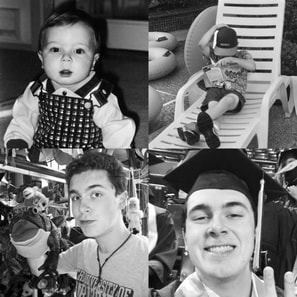
by Lonnie Pacelli
This is part two of How an Autistic Child has Changed a Career…For the Better In 2006 I wrote of Patty’s and my decision to homeschool our son Trevor to help provide a learning environment more conducive with his autism. It’s now twelve years later and time to write about how things worked out.  Photo by Carter Sherline Photo by Carter Sherline
Guest Blog by Tracey Cohen. Originally published on The Art of Autism
“For as long as I can remember, my greatest loves, which is when I am most at peace, are running, especially outdoors, helping others and just giving back to our world if even in the smallest of ways. It was during my service as a United States Peace Corps Volunteer in 2003 that I ‘fell’ into writing, a process that partially occurs during my run. My effort to bring more awareness to the needs of the developing country I served has progressed in ways I never dreamed, including two books, numerous articles and frequent speaking opportunities all of which allow me to help and connect with others in ways never deemed possible. Fueled by the courage I muster on my run, it is my honor and privilege to inspire, educate and entertain in the challenging world we live.” – Tracey Cohen Six-Word Lessons on Female Asperger Syndrome and Six-Word Lessons on the Sport of Running  Photo by Filio Saziedes on Unsplash Photo by Filio Saziedes on Unsplash
Guest blog by Ashley Taylor of DisabledParents.org
Parents with autism spectrum disorder face so many challenges. They may have to overcome their sensory overstimulation in order to keep up with household chores or their children. People they encounter might place the burden of stigma on the parent as they misunderstand autism disorder. However, many parents find that their autism actually has some benefits. They have insight and are more empathetic toward their children when they struggle with emotions. Or they find that while they are caring for their kids they are able to “hyperfocus” on the little ones. The point is, parents with autism have struggles and strengths just like any other parent. |
Inspiration for Life with AutismThis blog has a variety of articles about people living life with autism, and topics and ideas that can help in the journey. Guest bloggers are welcome. Inspired by Trevor, a young adult film critic, photographer and college graduate on the autism spectrum. Categories
All
Archives
July 2024
|
Proudly powered by Weebly
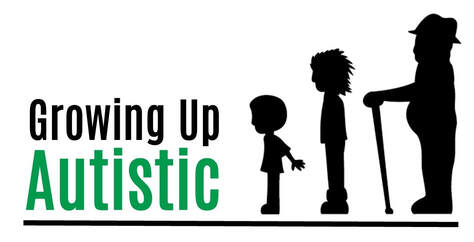
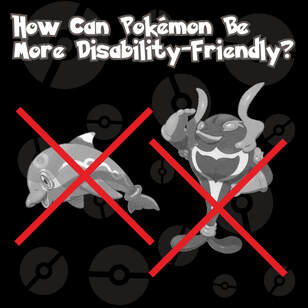
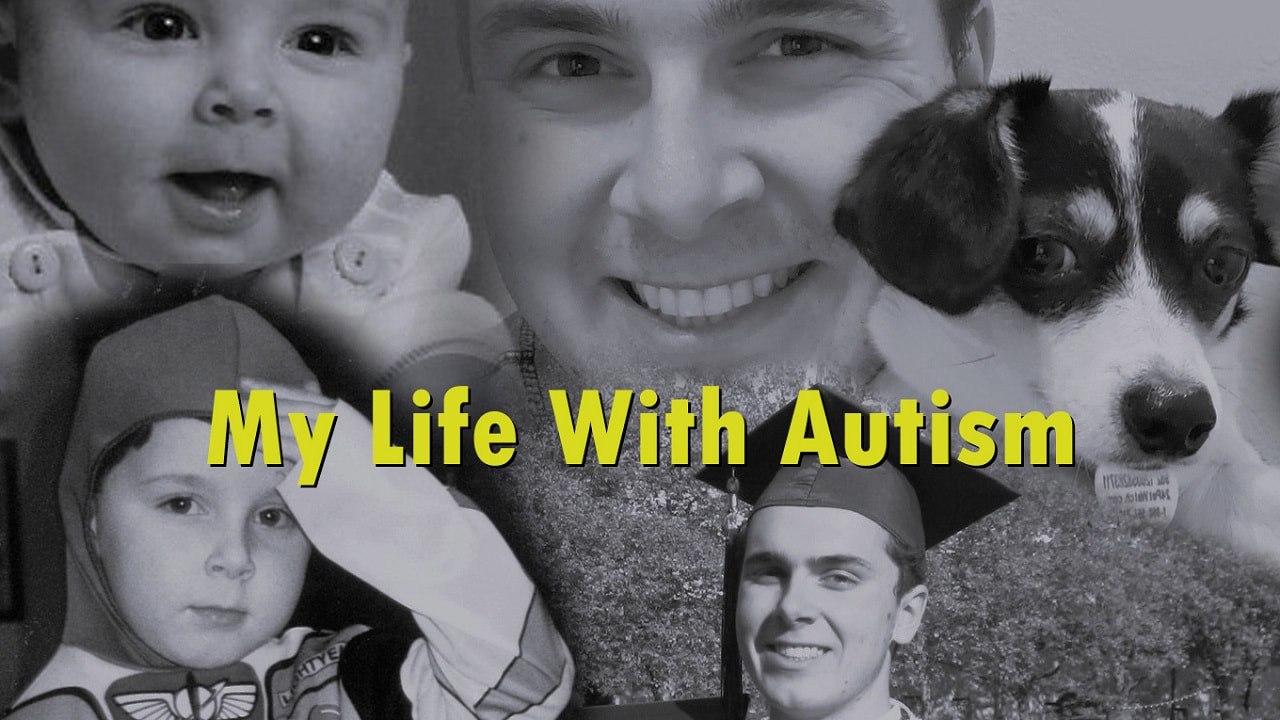
 RSS Feed
RSS Feed